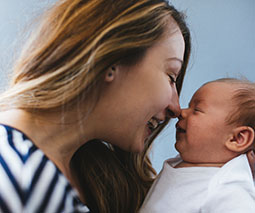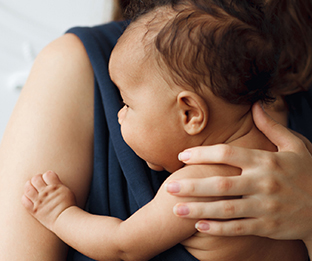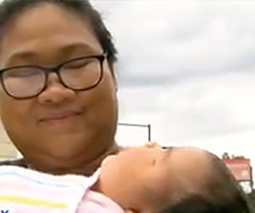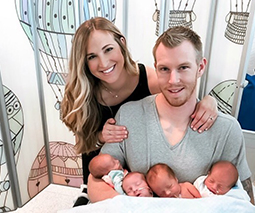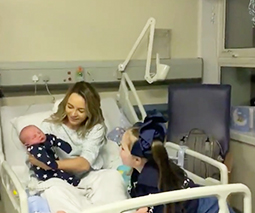Baby toilet training: Is elimination communication a crap idea?
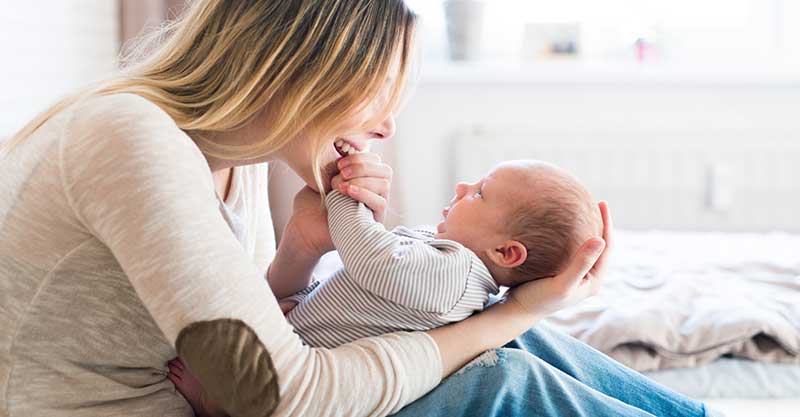
Imagine the scene if you will. You’re at a cafe with your two-week-old baby. They give you ‘the look’. You rush for the nearest toilet. Why? Because your baby needs it and she isn’t wearing a nappy. Welcome to the world of elimination communication.
Ditching the nappies
In a recent interview, the pregnant wife of NRL player Bryce Cartwright said that, in addition to not vaccinating her child (let’s not even go there), she’s ditching the nappies this second time around. Instead, she’s opting for elimination communication and will teach her baby to toilet on the grass.
What?
According to Wikipedia, ‘elimination communication is a practice in which a caregiver uses timing, signals, cues, and intuition to address an infant’s need to eliminate waste. Caregivers try to recognize and respond to babies’ bodily needs and enable them to urinate and defecate in an appropriate place (e.g. a toilet).’
After reading that, I think it’d be fair to assume that many (dare I say, most) of us will be grimacing and shaking our heads. Just the explanation alone sounds exhausting, let alone the practicalities.
However, some see it as a lifestyle choice. Kind of like eating clean and exercising I guess, only slightly less appetising and beneficial.
I understand the desire to cut down on the use of disposable nappies. I agree that’s great. But isn’t that why people use cloth ones? Surely that’s a better option than risk being (quite literally) covered in sh*t.
Read more about toilet training:
- This mum’s approach to toilet training will have you thinking differently
- Toilet training vs toilet timing: What’s the difference?
- Mum’s bonkers poopy toilet-training story is the stuff nightmares are made of
But what do the experts think?
“The literature on EC sounds easy and positive, hence, why many parents try it,” says parenting expert, Dr Karen Phillip. “Some may not know any difference, or they may have struggled with toilet training with an older child.
“It sounds reasonably straight forward, however, I have grave doubts on its capacity to enable a baby to ‘know’ when they need to eliminate their bowel or kidneys.”
Phillip believes that elimination control is quickly abandoned when parents realise the difficulty, pressure, impracticality and time required.
“A three-month or six-month baby doesn’t have the neural pathways developed to know when they need to eliminate,” she tells me. “You may be able to set a routine, but this doesn’t mean that the child actually understands they need to eliminate.”
Phillip notes that the pressure on both the parent and child to make this a success is huge, particularly as it’s something that was never meant to occur at such a young age. She also believes that the cons of doing it far outweigh the benefit of saving money on nappies.
“Most of the literature and stories about it being a success state that it’s more luck, rather than the baby being aware of their toileting requirements,” she says.
Old enough to understand
Instead, Phillip says that toileting is far better dealt with in a natural, guiding manner when an infant is old enough to understand.
“I believe all children can or should be toilet trained by 24 months,” she says. “Simply sitting them regularly on the potty or toilet (every 30 min) followed with excitement and a small reward for any deposit, works wonderfully.”
I couldn’t agree more.
Having successfully adopted this traditional (I want to say normal) method of toilet training for both my boys, I couldn’t imagine doing it any other way. Parenting is hard enough without adding anything in unnecessarily.
As far as I’m concerned, the whole idea of elimination communication is a load of crap.
